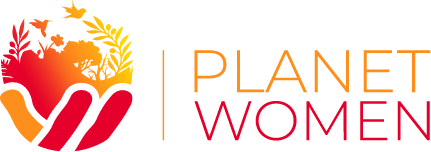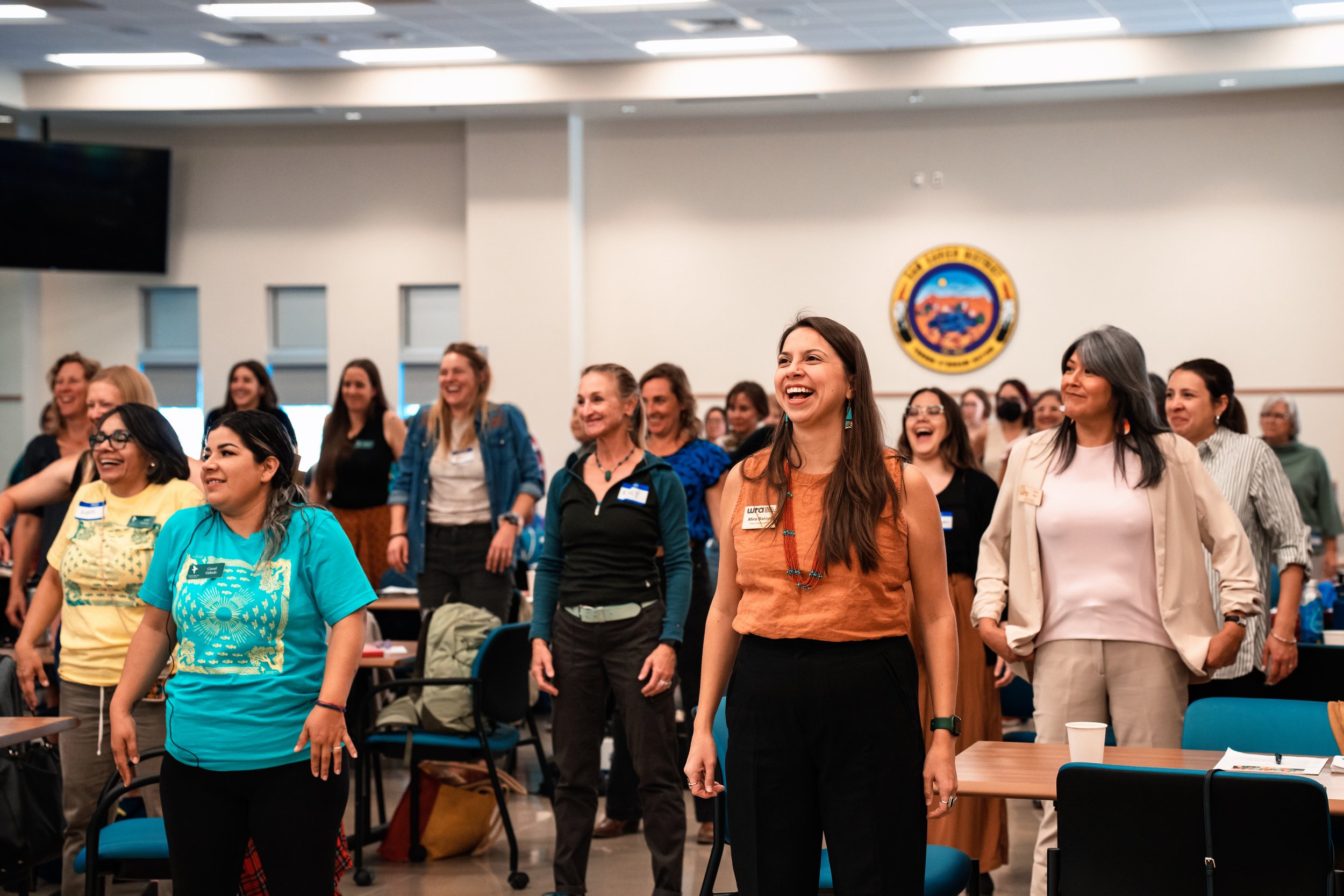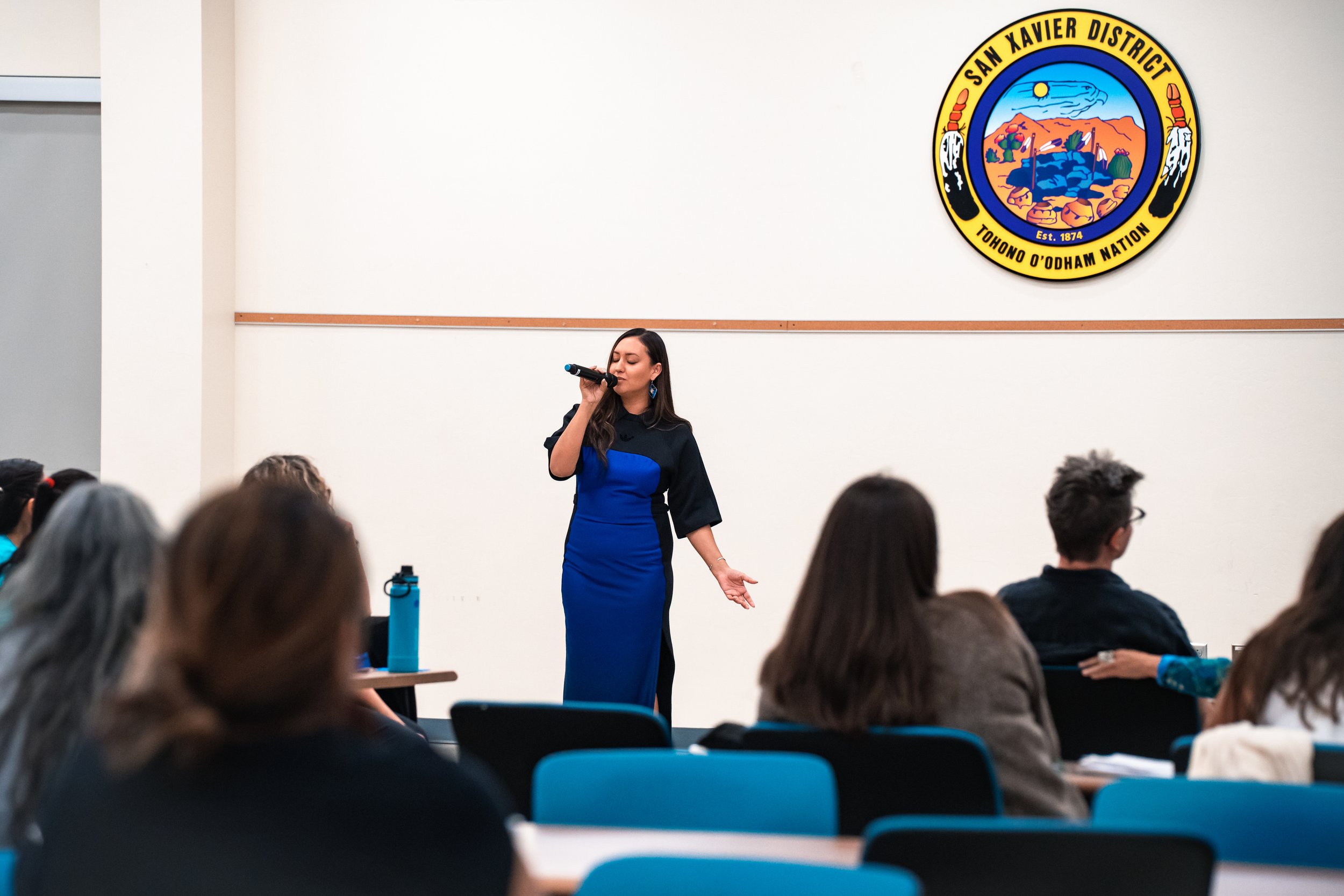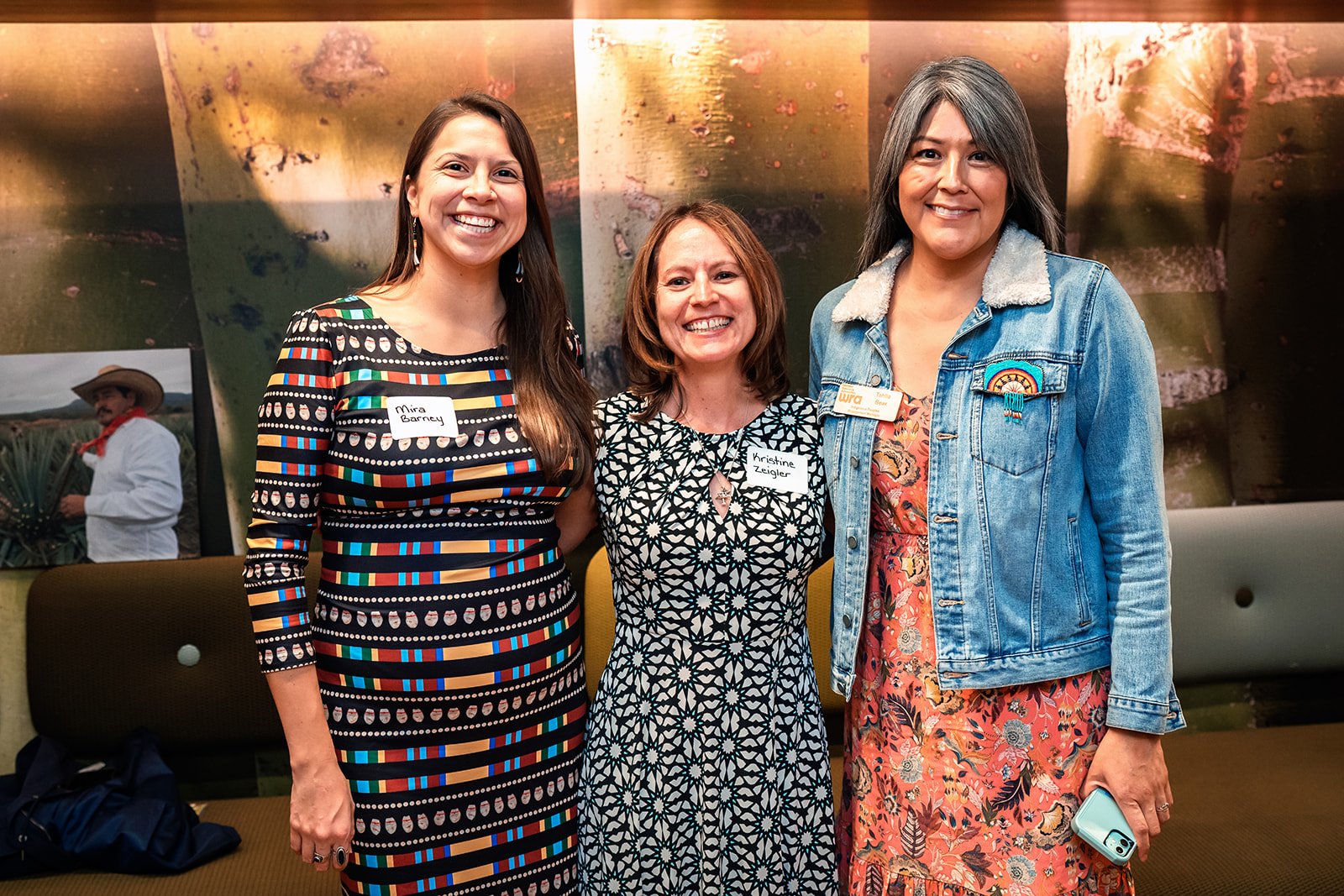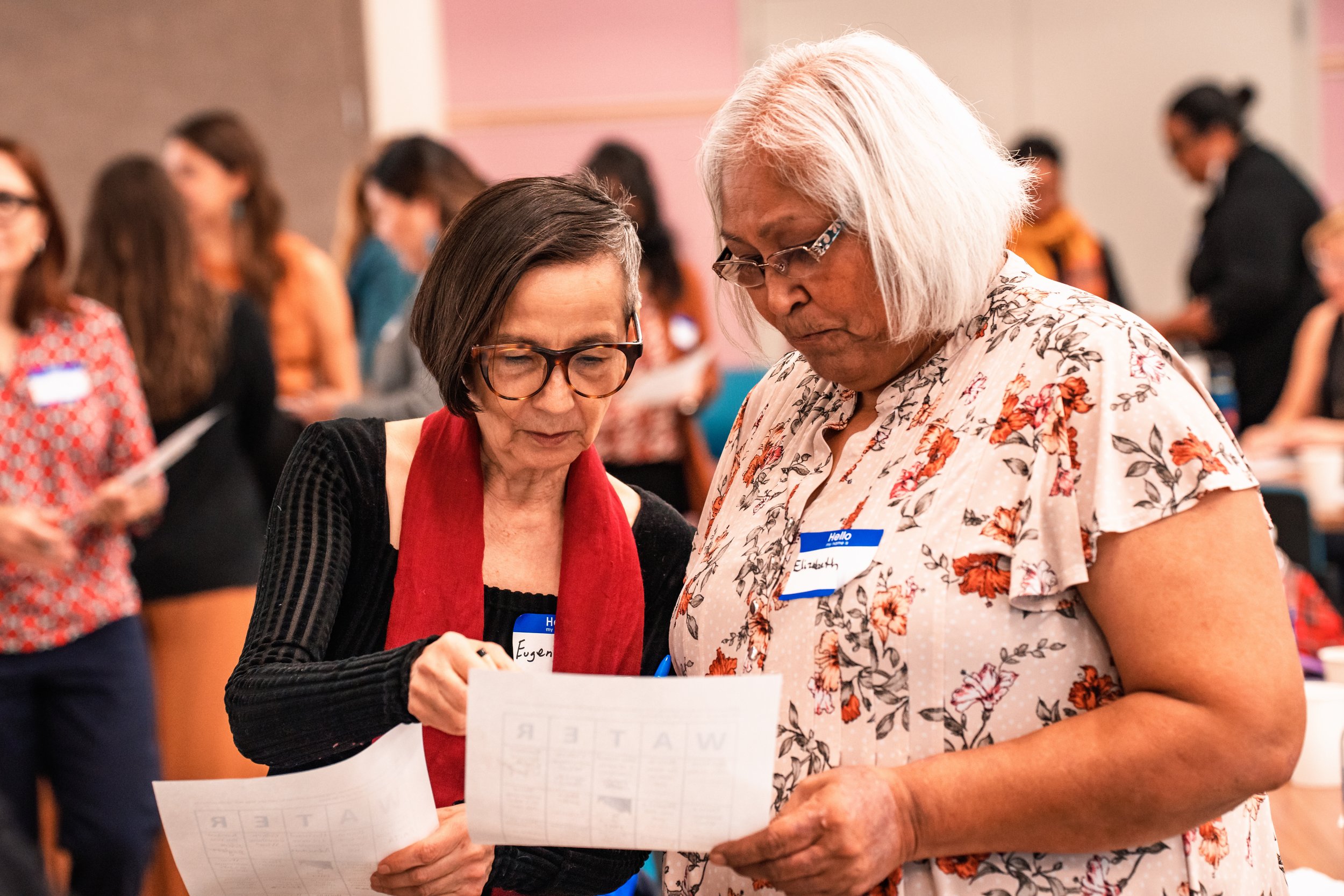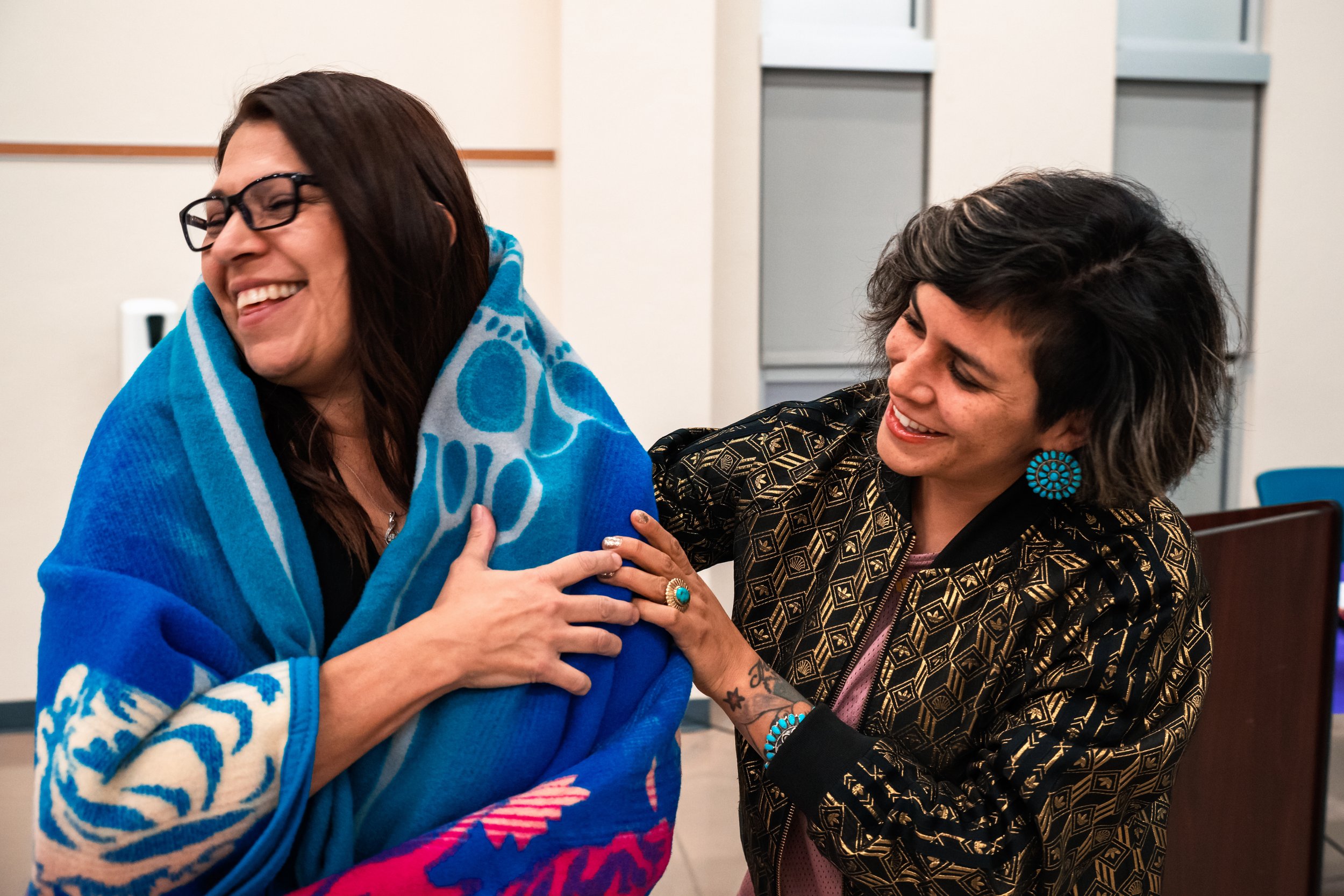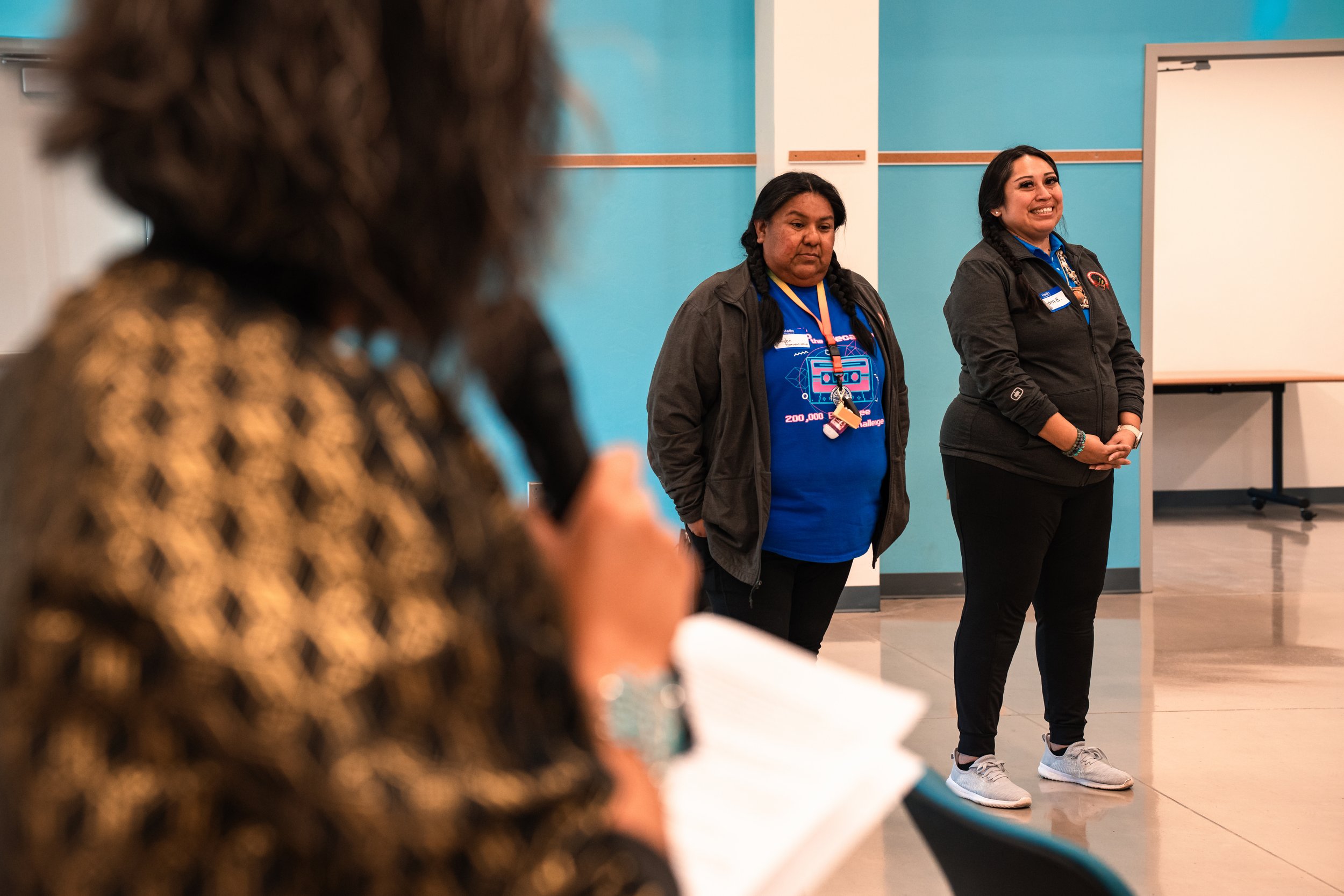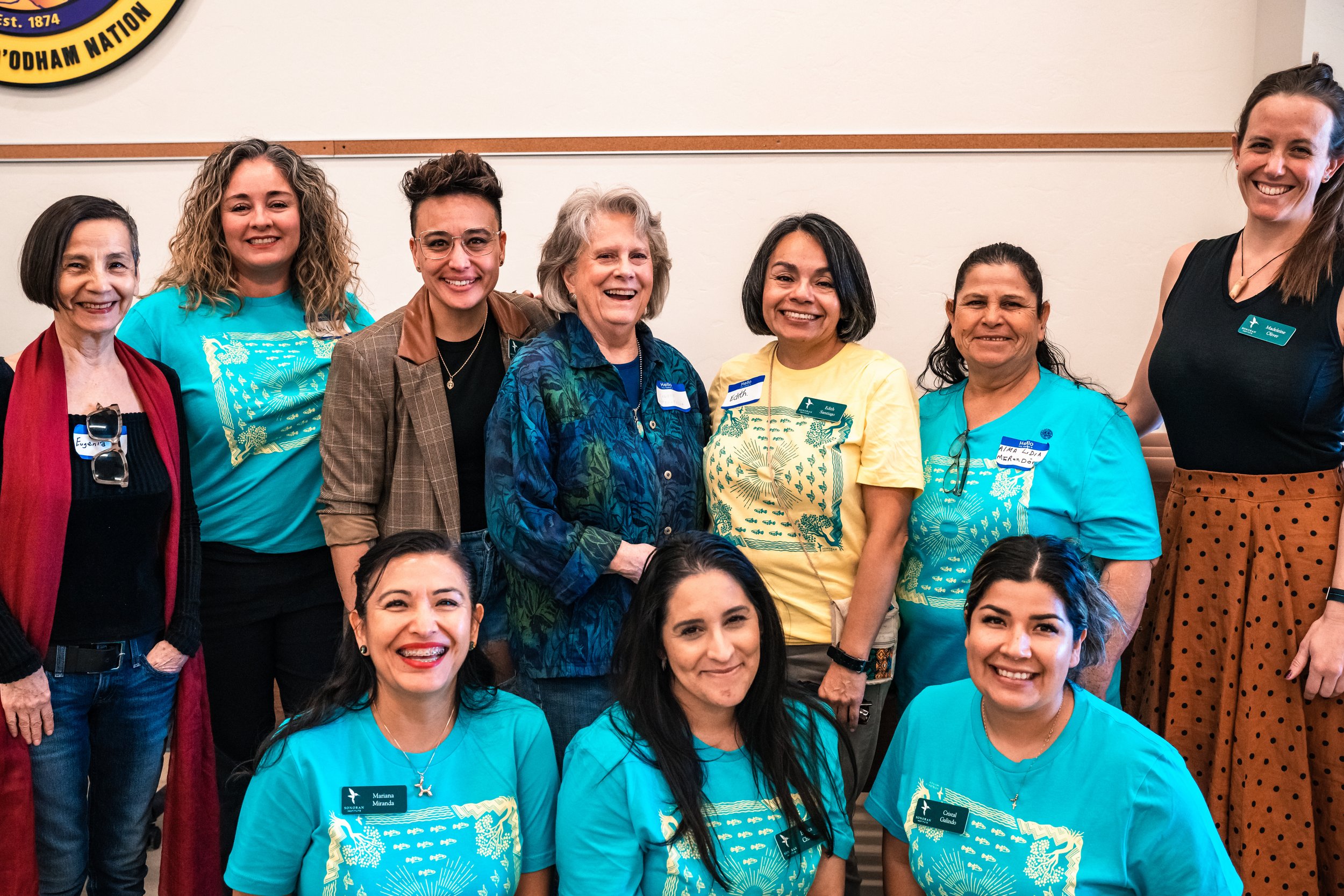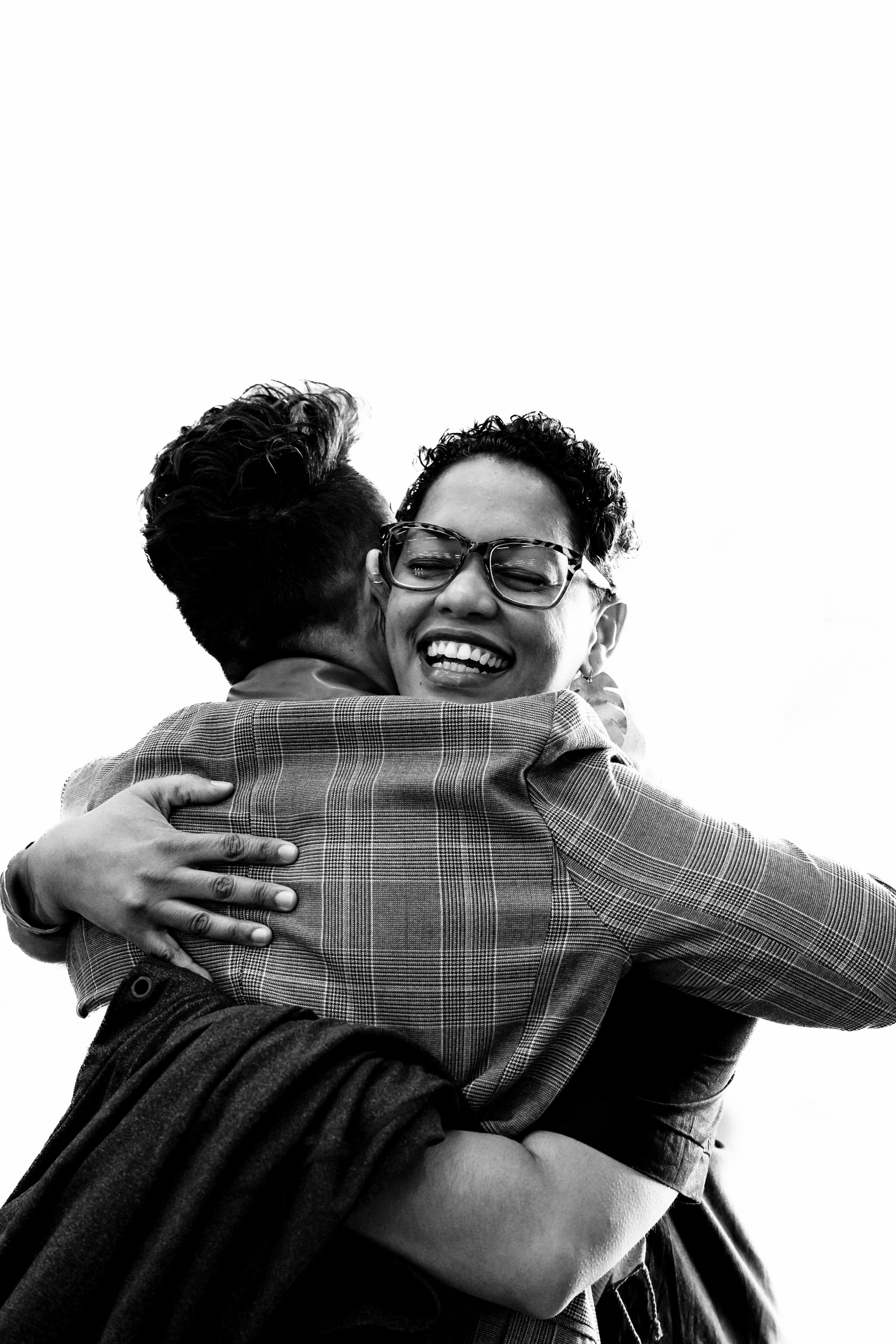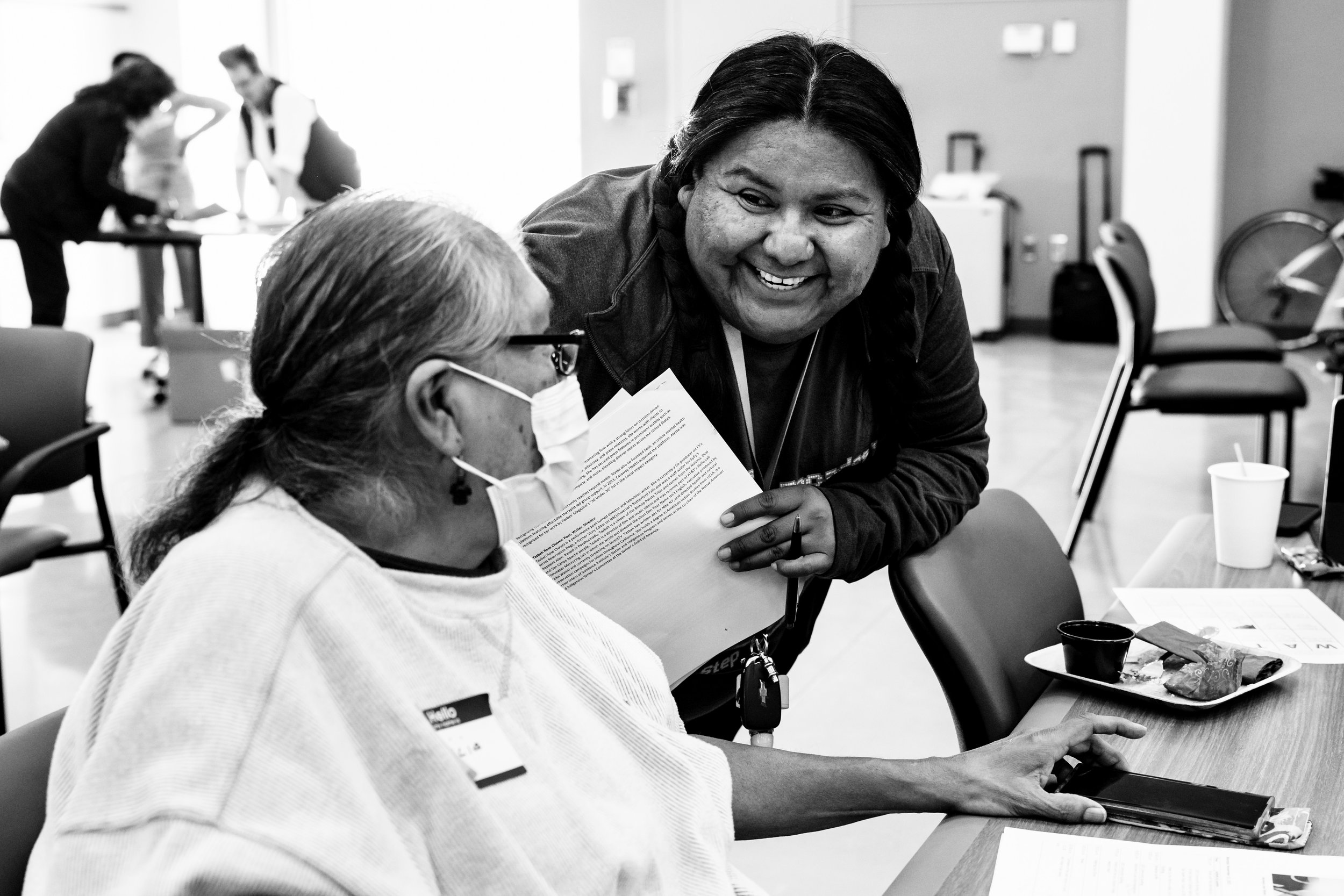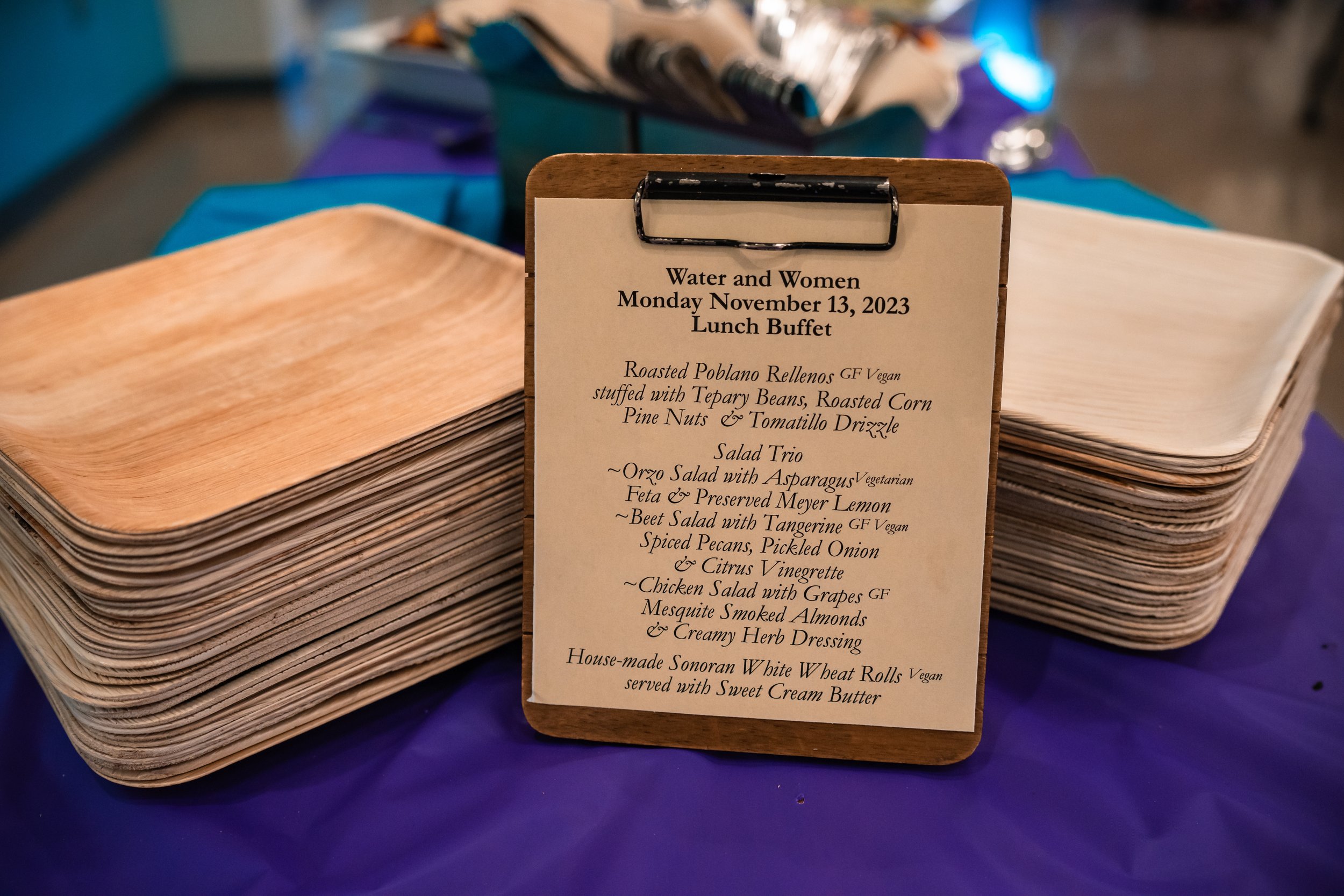A Historic Convening on the Colorado River
On November 13, 2023, a historic event took place on the Tohono O’odham Nation: Women & Water: A New Story Begins on the Colorado River. Co-hosted by Planet Women, The Chapter House, the Indigenous Women’s Leadership Network, San Xavier District of the Tohono O’odham Nation, and The Nature Conservancy, this event focused on empowering the voices of women, femmes, and all who have historically been excluded from environmental spaces. The timing coincided with the U.S. Water Alliance’s One Water Summit also taking place in Tucson.
Photographer Candid Sol captured the Convening’s impact and uniqueness. © Candid Sol.
The Women & Water Convening was created to address water issues in the Colorado River Basin through inclusive, community-driven approaches. This gathering brought together more than 80 people whose work is connected to Colorado River water issues, at the intersection of Indigenous knowledge and Western science. Presenters discussed several topics including the role of networking and community, wellness and healing from past harm to create stronger futures, the basics of the Colorado River and its future, as well as media and press training. The gathering was so powerful that we hope to make it an annual event!
Attendees included leaders, youth and emerging professionals, and community members. Featured presenters included Tazbah Rose Chavez, a performance poet turned director and television writer for shows like Reservation Dogs, and Anne Castle, former Assistant Secretary for the US Department of the Interior and current senior fellow at the Getches-Wilkinson Center for Natural Resources, Energy, and the Environment at the University of Colorado Law School.
About the Convening, Planet Women co-founder and CEO Kristine Zeigler said:
“I have never felt more alive and aligned seeing the diversity of experiences and backgrounds in one room that day. From Tribal nations to state, county, and federal leaders, the participants made for an incredible day of learning, mutual support, allyship, and inspiration. One woman said to me later that the water meetings she attends would never think to feature a poet. With our collaborators, we created a healthy, vibrant, creative, and safe space for all ages, all career levels, and all identities. It was awesome, I am profoundly grateful for everyone who created this opportunity to gather and especially thankful for the leaders of the Tohono O’odham Nation who hosted our inaugural event.”
We asked Emma Robbins, Planet Women’s Managing Director and Founder of The Chapter House, to share more about this event in a Q&A.
How would you summarize the Women & Water Convening?It was a one-day event that brought women, femmes, and non-binary folks working in the water world, whether in WASH, conservation, and/or human rights. We came together on the Tohono O'odham Nation, which was amazing as we were able to collaborate with the tribe.
From your perspective, what is the role of this convening in getting to a healthy Colorado River Basin?The Women & Water Convening is so important because we're including all voices—Indigenous leaders and emerging leaders, engineers, and people who have not always been listened to but who are experts in their own experiences, especially on water sources like the Colorado River. Coming together allows us to highlight and brainstorm solutions that traditionally might not have been implemented by government or engineering organizations and we’re able to work together in more collaborative, sustainable, and culturally inclusive ways.
Do you think decision makers will incorporate these voices into solutions?Yes. For me personally, working in the water world for seven and a half years, I have seen a shift when elected officials and government agencies start to listen to the community. This is why gatherings like this are important because in mass numbers, we can get so much done, including caring for our water sources, educating our communities, and getting those in need clean, safe running water. We heard the community members, leaders, and youth all say similar things, like they wanted their voices and knowledge to be included. It’s time for decision makers to start listening and work with us, and not against us, especially tribes in the Southwest and along the Colorado River.
What is the legacy of this first Women and Water Convening? I saw attendees and organizers walk away with strong connections. Although this was a one-day event, it was a space created for people to come together and stay together moving forward. Oftentimes what I see in the conservation sector and in the human rights sector is a deep and unnecessary division between these two worlds, when in actuality they’re so interdependent. If we're not caring for the earth, we're not caring for the people, and vice versa. At the Convening, I witnessed that barrier being broken down and heard many conversations about braiding all of this together. The biggest thing that came out of the convening was a strong base of community that had been formed, even only from one day. This is why it’s important to make this a recurring convening!
The last thing that I want to highlight that was unique and important to this convening was that there was incorporation of creativity, the arts, the hard sciences, as well as cultural elements. This allowed for us to have fun and to have difficult and rigorous conversations.
The incredible attendees of the first annual Women & Water Convening. © Candid Sol.
We’re grateful you’re here! Please consider supporting our work and a global community of women leaders by making a gift below. When you make a recurring gift, you will join a thriving circle of Planet Women Ripple Members. Thank you so much.
